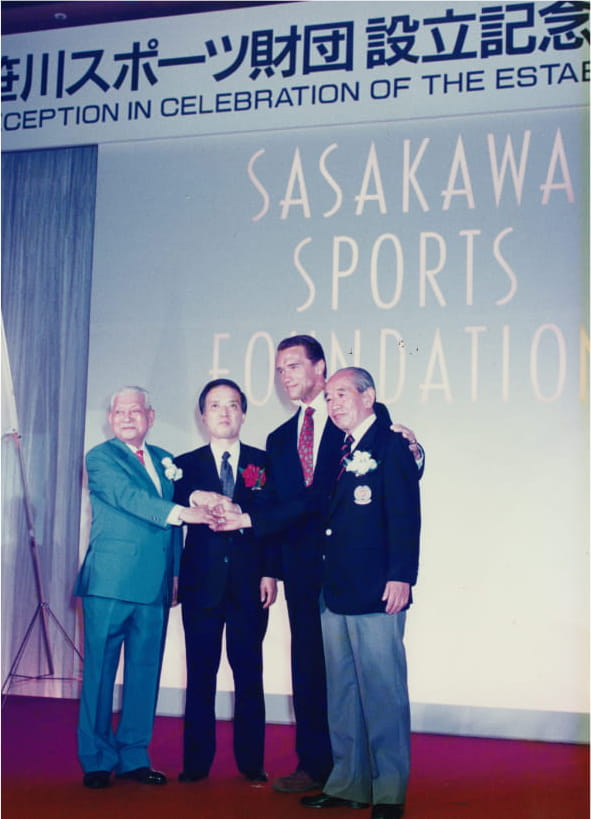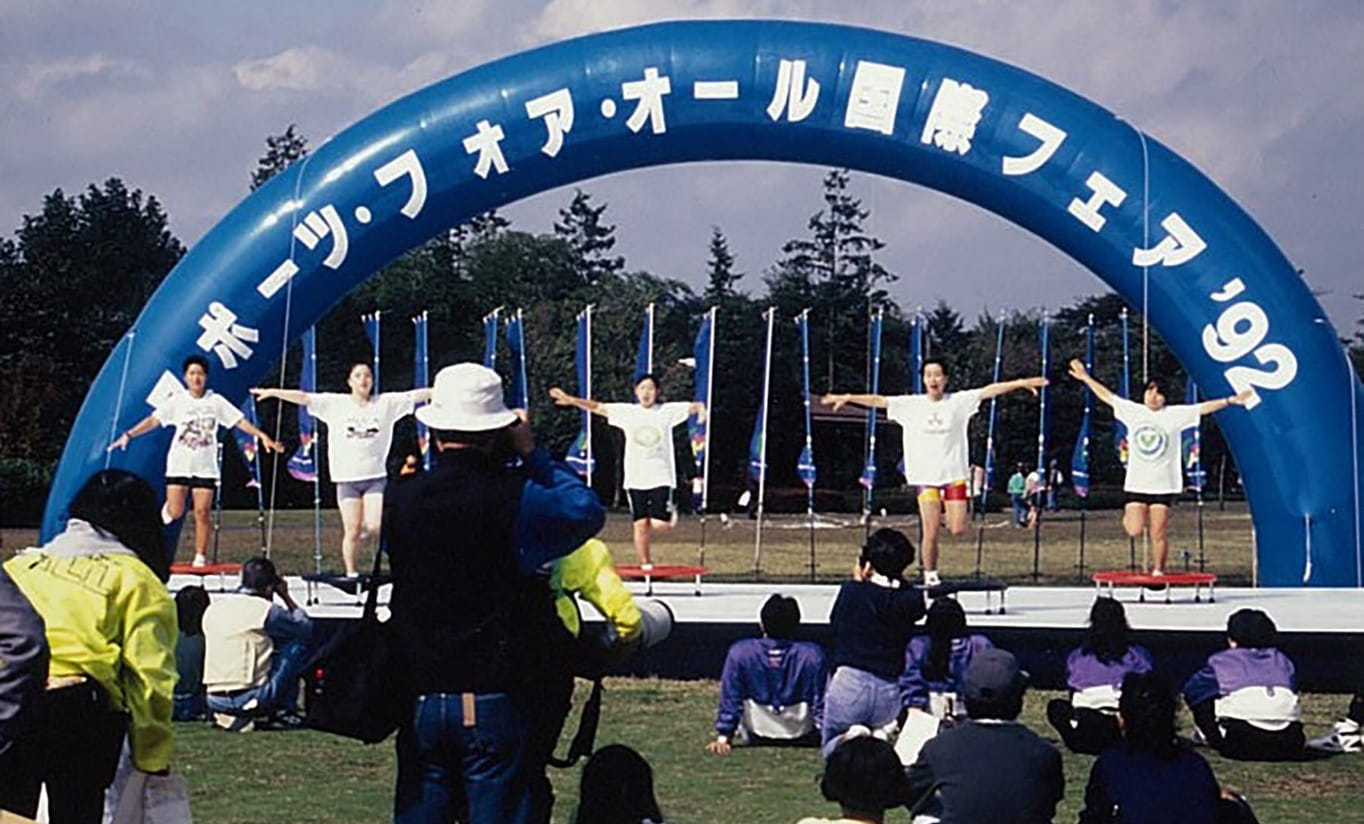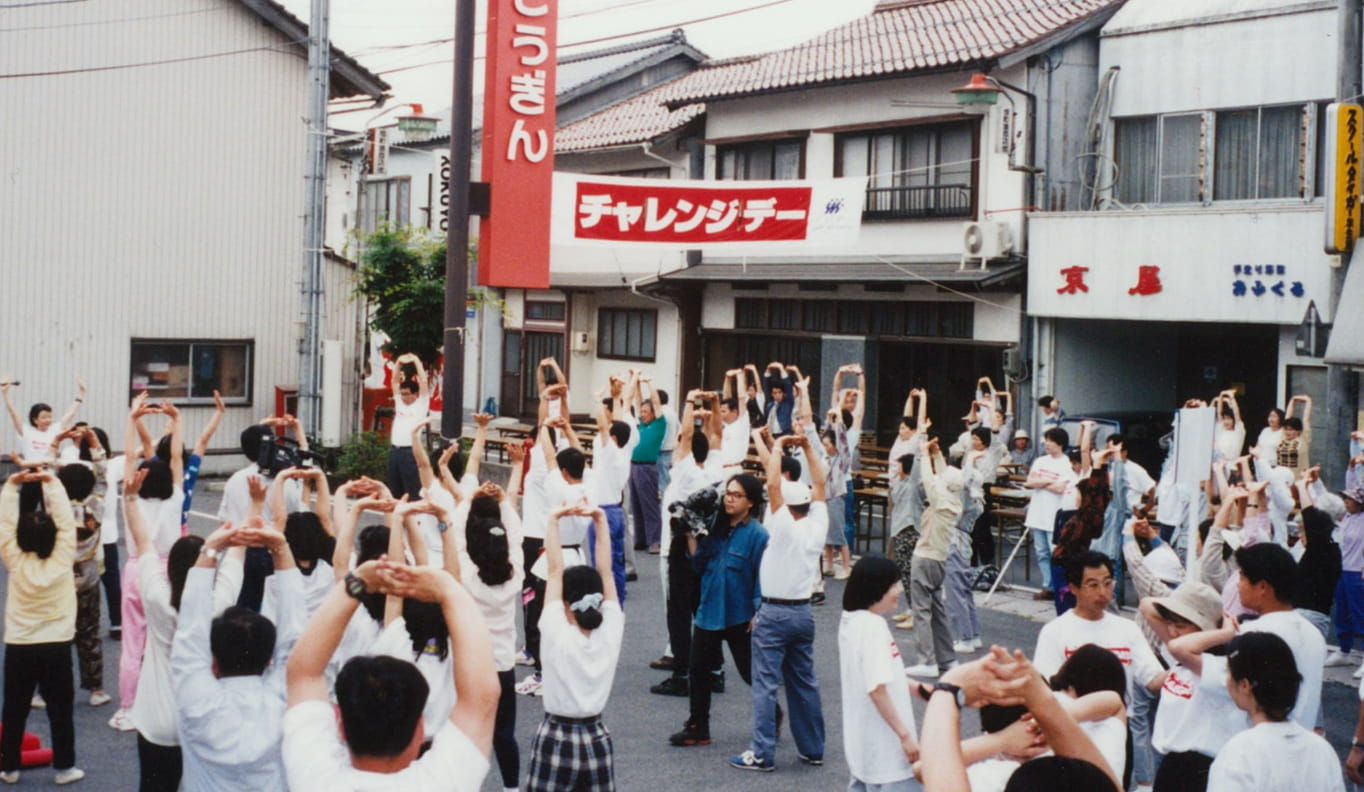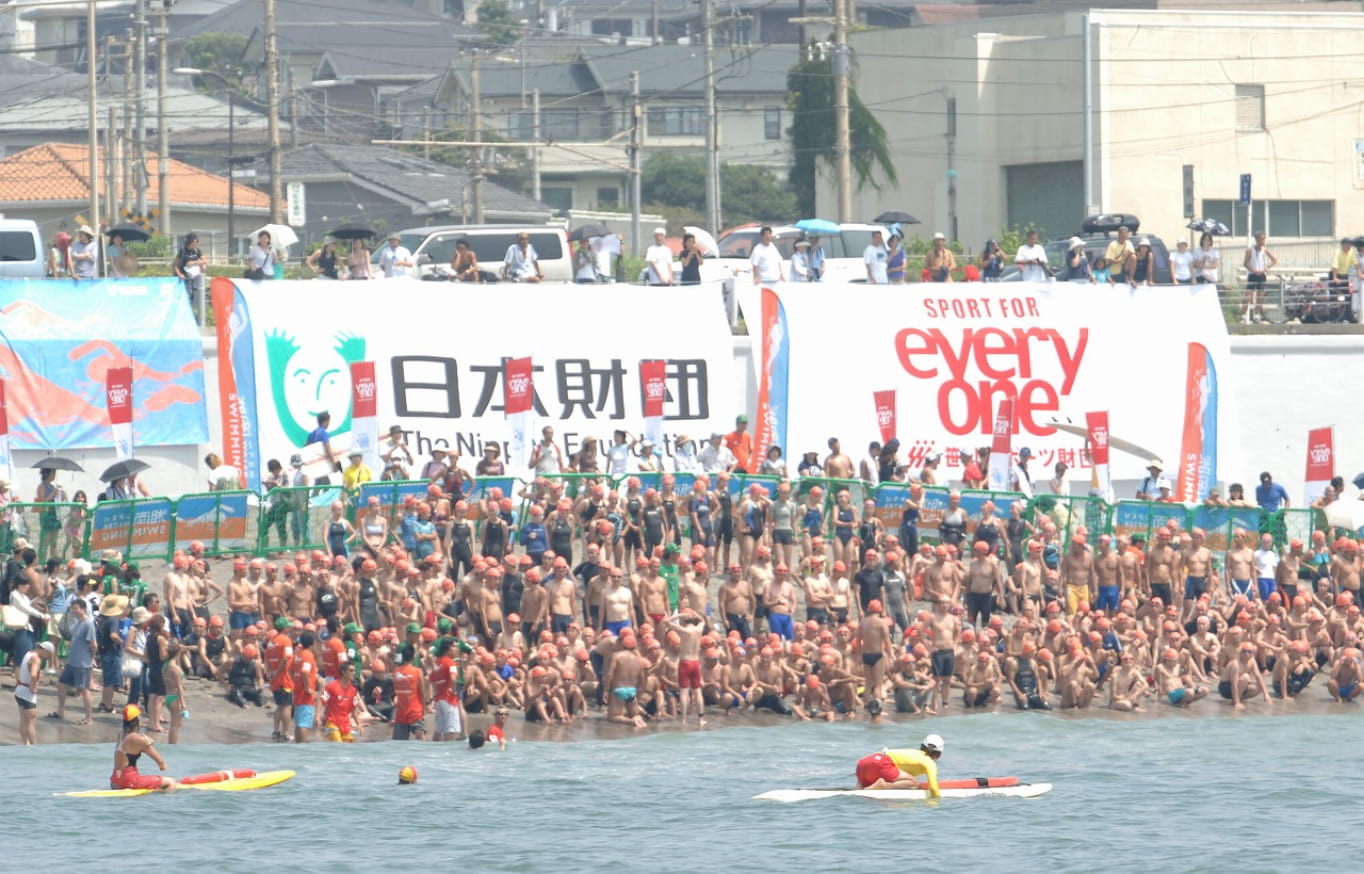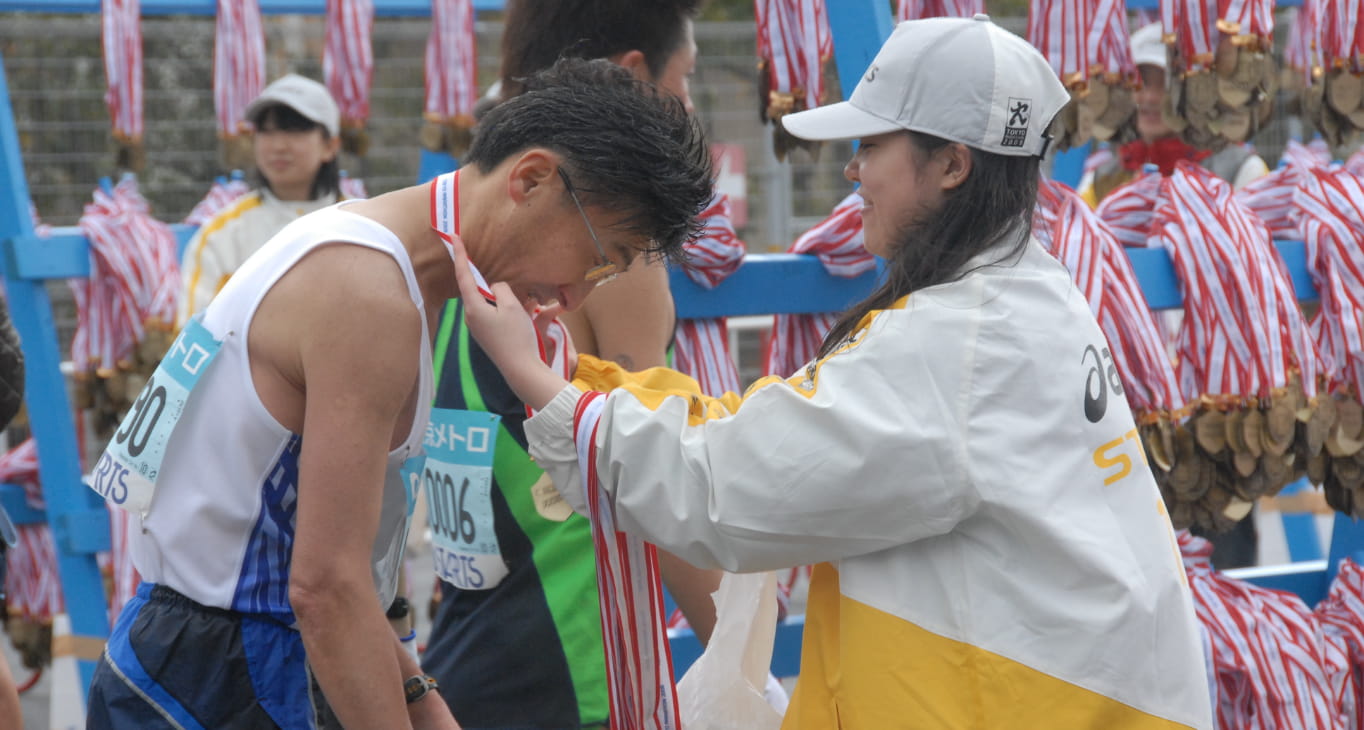The SSF National Sports-Life Survey of Young People complements the National Sports-Life Survey by gathering data on younger residents—ages 10 to 19 from 2002 to 2016, and ages 12 to 21 since 2017. The results of the survey attracted attention for the polarization they revealed around sport and physical activity.
Although Japan is an island nation, marine sports are not as popular among its people as elsewhere. To reverse this drift away from the sea, in midsummer of 2004 the SSF held an open-water swimming meet on the Shonan coast, a seaside area popular with young people not far from Tokyo. (Open-water swimming has been an Olympic event since the 2008 Beijing Games.) The event became popular with men and women, young and old, with around 2,000 participants every year. In 2009, management of the event was transferred to related organizations.
The SSF was instrumental in holding the Tokyo Marathon, which sees 30,000 contestants run through central Tokyo every year. The goals of the marathon included opening the roads to sports, holding an event where disabled and non-disabled people could compete together, and cultivating a culture of sports volunteering and charity. From planning and proposals to negotiations and attracting contestants, it took more than 10 years for the event to be realized. Working with the Tokyo Metropolis and the Japan Association of Athletics Foundations, the SSF managed 10,000 volunteers. Later this event would spread across the nation, and city marathons would be held in many locations. Starting in the fourth year of the event, the Tokyo Marathon Foundation was established to manage the event, which remains extremely popular.
Extending the National Sports-Life Survey and National Sports-Life Survey of Young People, in 2010 the SSF launched a National Sports-Life Survey of Children targeting children aged 4 to 9 (4 to 11 since 2017). The
survey showed that a clear division of children into those who did and did not exercise or play sports was already underway by the age of 8. The results of the survey are published as National Sports-Life Survey of Children. In 2017, this survey and the National Sports-Life Survey of Young People were merged.

